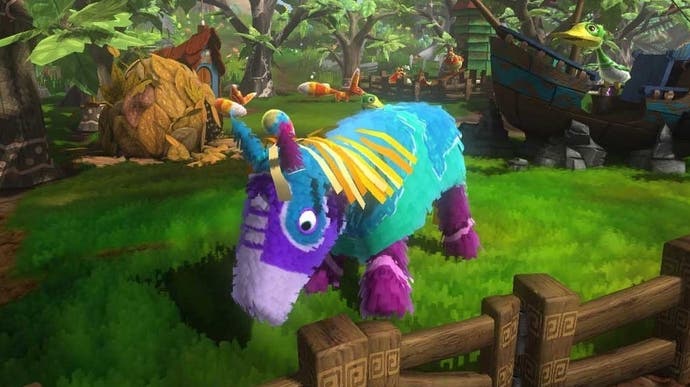Viva Piñata places a brutal lens on late-stage capitalism
Shovelware.
When Rare developed Viva Piñata it was a cute game for the Xbox 360 to rival Pokémon. It shipped, wholesome and lurid, with every new 360 for basically the console's whole lifespan and spawned a co-operative play sequel, Trouble In Paradise.
Which is an apt name because although I love my boyfriend and am glad he wants to join in playing with me, he is nowhere near as good at Piñata wrangling as I am and I am probably going to have to sell him for chocolate coins. Welcome to Piñata Island, where you'll find out what you're really made of.
Viva Piñata is fiendishly complicated, with the premise being that you plant special flowers or develop garden features to attract cooler and cooler Piñata to your garden. You can play it as a slow, sweet exploration game, but it doesn't reward you for that. It recognises relentless, precise brilliance and rapid action. It's maybe the only game where the kind of business psychopathy preached on Huel-based wellness retreats outside San Francisco will actually work.
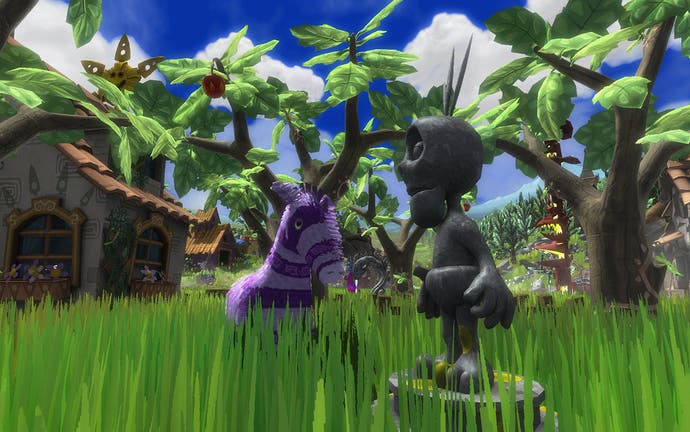
You start off in the game by inheriting some land - which is sort of treated as a nothing and as if this is a fair starting point but, let's be real, this is some bougie startup stuff. You then get given your primary weapon and the game's true dark heart: a ruddy great spade.
Of course, nominally, this is for digging nice little holes to put lovely flower seeds in to help them grow. Bullshit. The very first thing you do with it is beat your frustration at never having lived up to your parents' expectations out on the dirt of your garden, which strangely renders you coins - a pattern that will continue.
Yes, in principle you're a gardener who just wants to make the loveliest space - but you're gardening in a society. And that society is the hyper-capitalist world of Piñata Island, which runs on cash not nice flowers.
Although the nice flowers are worth cash - everything, in fact, has a price, from piñata to pinecone.
The first islander you meet, Lottie, is a capitalist through and through. Every time you walk into her shop, the game implies you're being lightly mugged-off and she makes no secret of it or her desire for cold, hard chocolate cash. Or, as one of her dialogue lines says, slightly melty cash; she's not fussy.
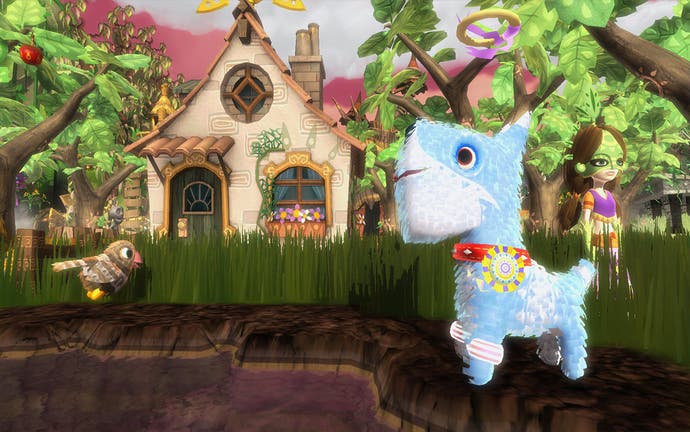
Then there's the builder who openly rips you off, and a tinker who you have to bribe to actually do his job, the bored, furry teenager enslaved in her parents' pet shop, and innkeeper Arfur, who offers a menu service of garden labour from a dingy local tavern. And Gretchen, a sort of contract kidnapper for Piñata.
As a gardener, you can produce considerable wealth. Once you've morally reconciled to hawking anything you own for just a lick of coin, really nothing in the village is out of reach to you.
Just so long as you maintain momentum, by working night and day and harrying your assistants, piñata and fruit trees by hitting them with your spade or force-breeding them to sell their offspring. Or force-breeding them to build a huge workforce that relentlessly creates produce for you. The breeding thing is pretty dark, even before you add the weird pornographic glimpses into the piñata houses that show them at it.
But like the nouveau riche yuppies of the 90s, you'll never truly be amongst the upper echelons. In a blunt visual metaphor, Piñata Central looms above the island, in the clouds, sending down crates they demand you fill with your piñata, so they can beat them to death at a party. It earns you money but you'll never get an invite.
Down on the ground, you're quite likely to have to beat some of them to death yourself. It makes the others happy when the sweets come out. And happy piñatas are worth more.
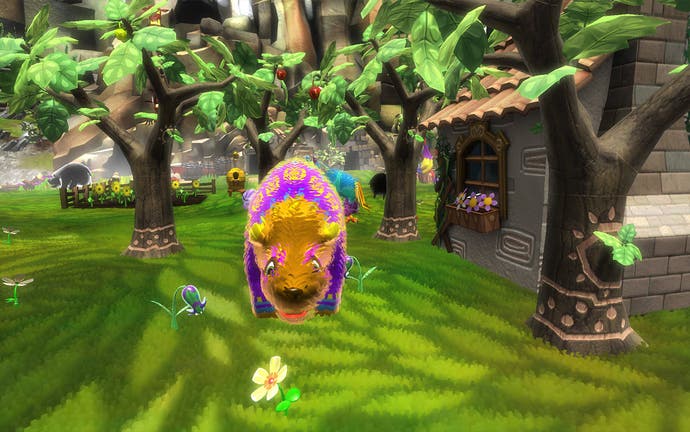
It seems wrong, at first, relentlessly beating these creatures you've lured into your garden with an attractive display of poppy flowers or perhaps the promise of a delicious morsel you've worked your arse off for and had to get the fucking tinker and build a fence round the poison ivy so none of the other utter dumbasses eat the obviously poisonous thing. It might seem morally bad to forcefully breed them in a factory programme so that you can sell their children, after making them fat with happiness on the sweet innards of less high-value piñata. It might make you flinch that even the bad piñata squeak sadly in the moments before you smash your spade into them for the final time. And it probably should.
But, well, the game does reward you for it. You probably think shooting people is wrong IRL but it's how you win Call of Duty and so, too, you have to play the game of dead-eyed VC startup cruelty in the garden.
'Your gardening is improving' becomes the panacea to all kinds of ruthlessness as you gain levels and your once profitable empire of ladybird production is discarded for sweet, sweet yak cash.
I've been playing Viva Piñata for more than ten years. I know the inner darkness of the game well enough to keep up a running commentary about my moral decay over the course of my horrible actions and, like some sort of horticultural Jeff Bezos, I know how to be successfully evil.
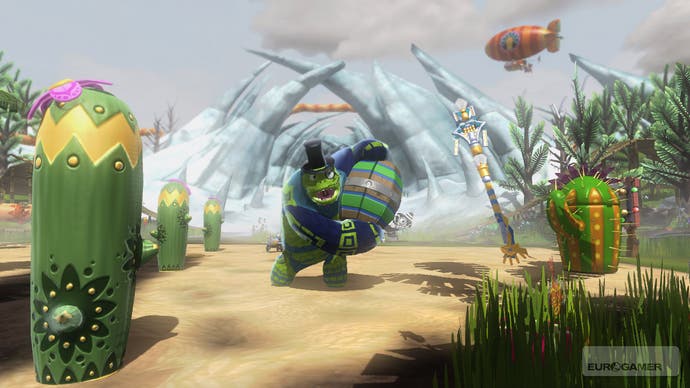
Maybe the most harrowing moment across the games is when Ivor the beggar enters your garden, exposing the less privileged side of the island by just level 4. You can pay him to leave - or you can pay him 1000 coins to set up a shop for exotic items in the village.
1000 chocolate coins is less than the profit from selling two moderately unhappy toads. So it's a no-brainer - but it makes the game's premise clear from the start. To succeed, you don't really need the greatest garden.
You don't even need the best piñata, although levelling up to attract the more expensive ones is a huge bonus of course. There's only one way to make it rain in the cruel, capitalist world of ornament-bashing, and it's Scrooge McDuck-style, selling another ladybird to let the sweet, sweet coins flow.
